Podcast 118: How Justin Makes $1,000 a Day with Android Apps and Even More with Amazon FBA and Google Adsense
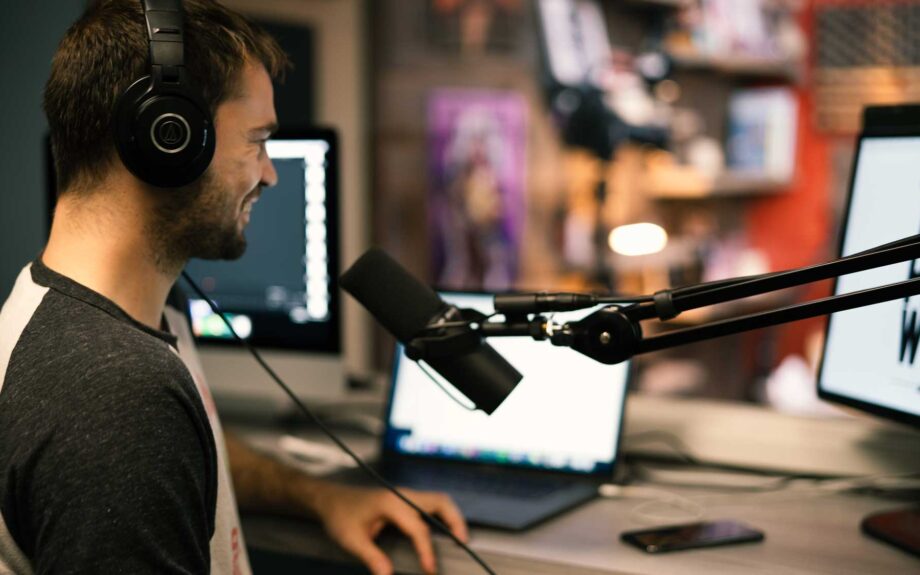
When you buy something through one of the links on our site, we may earn an affiliate commission.
Welcome to another Niche Pursuits Podcast!
In today's episode, I share an interview I did with Justin. Now Justin, did not want to share his last name or any additional information about himself, but he still had plenty of great business tips to share.
He doesn't have anything to pitch, he simply wanted to share what has been working well in his business. I hope you'll stick around and listen, because he provides some exceptional tips for building an App business as well as Amazon FBA and Google Adsense revenue streams.
Enjoy the interview!
Read the Full Transcript
[expand title=”Click Here to Expand the Full Podcast Transcript”]Spencer: Hey everyone! Welcome back to Niche Pursuits Podcast, . Today, I’ve got a really great guest interview for you. It’s kind of a mystery guest, if you will, his name is Justin but he preferred not to share his last name. He’s not going to share any of his websites. He’s really somebody that just likes to work behind the scenes but he really does have a great business. I hope you don’t mind listening to this interview even though you can’t go check out his products, he doesn’t have a blog. He doesn’t have anything to pitch or anything like that. He’s just willing to share a lot of great free information on how he’s built some pretty significant businesses.
You should listen to the interview, you’ll hear how significant. I’ll share a little bit of information. He has several niche websites. He’s making great money from Google Adsense, that’s how he got started out. He’s also very involved in the app business. He’s on the Google Android Play Store and he did share that he’s been doing about $1,000 per day in revenue this month. It’s a significant business there, and then even larger than that business is his Amazon FBA business that we dive into as well.
Overall, Justin is involved in several different businesses. He’s been doing this for over 10 years. He’s learned a lot. He has a lot of great tips to share and so I hope you all sit down and listen and be able to learn a thing or two. Overall, enjoy the interview. Thanks a lot! Welcome to the Niche Pursuits Podcast!
Justin:Hey, thanks for having me.
Spencer:Yup, absolutely. We’ve been in touch actually over the years over Skype sort of intermittently, but this is really the first time that we have a chance to be able to call and chat. I know you have a lot going on in your business and we are gonna dive into that but before we do, can you give people kind of a brief background of your work experience previous to working online, if you will?
Justin:I started working online probably about 11 or 12 years ago. Right before I got married, I did painting. I’ve done fire alarm insulation. I worked for UPS. A lot of different physical jobs but I was just kind of at a point where I was getting tired with doing those manual labor jobs and I just wanted to get out of it. I always knew there was a way to make money on the internet. I just wasn’t really sure how to do it so that kind of began my journey. I just started researching and testing and failing a lot and here I am now.
Spencer:What was your first online business venture that at least made a few bucks?
Justin:I think like a lot other people, I started learning how to make websites and then wanting to charge people for those websites. I started front page and then I started selling my website services for $150 to $200 for a full website. Meanwhile, I was also attempting to learn how the eBay affiliate program worked.
I was creating these little websites in front page with eBay affiliate links on them. I remember when I got my first little commission from eBay, I was so pumped. I just got married at the time and I was showing my wife, “Look, this actually can work.” I might’ve made like $1.50 or something like that. That was kind of my first experience there. A little excitement to kind of move on to the next level.
Spencer:That’s awesome. I dabbled in eBay, selling products on eBay and I did that eBay affiliate program as well. I remember front page, those are the kind of the good old days. We’ve both come a long way since then but can you give me an idea of a time frame when you actually quit your job and started full time online and what you were doing there?
Justin:Yeah, absolutely. I have dabbled for a while with trying to learn ClickBank and other affiliate things. I have gotten sales here and there but nothing really substantial that I can make a living off of.
After I learned how to build websites, I learned a little bit about CPanel and hosting. I actually got a job with a large hosting company in Houston and I won’t name them obviously but you probably know who they are. I worked there for a while and learned more about the hosting world, learned more about other people that did affiliate things because I would come across a lot of customers that had affiliate websites and so forth and people that were really successful. It blew my mind.
At that point, I decided to really take it a little more serious and learn about blogging. I was obviously doing a little bit of that but learning a little bit more about how to rank, how to build sites that people would visit and at that time I just started building these really small sites and putting content on them. I started having a little bit of success. I think at the point where I was making about $1,500 to $2,000 a month, I decided to call it quits with the web hosting company and go full time.
Spencer:That’s awesome. You took the leap of faith. Did you just keep building out more websites at that point?
Justin:I did. I expanded upon it and then I realized that I could really create larger sites with lots of long tail keywords. Just all those long tail keywords accumulated to be lots of clicks for AdSense. At that point, once everything kind of started clicking, my income obviously jumped up and went from $1,500 a month to around $6,000 or $7,000 a month and then I kind of floated in that area. I kind of got into a comfort zone where I didn’t really want to work as much so I was very comfortable with that $6,000 or $7000 a month and just kind of hung around in that dollar amount for a while.
Spencer:Right, I can understand that. Once you start seeing the money come in and it seems quite passive, you’re just checking your AdSense accounts, seeing how many clicks you’ve got. That’s the most work do some days, right?
Justin:That actually, that right there was one of my biggest obsessions and I don’t know. I’m sure so many other people can relate to this that use AdSense. You click that refresh button, you know, you say, “I’m only going check it once an hour,” but you end up checking it four or five times an hour just to see. Sometimes you get those big clicks and you might jump $10, $20 so you’re so excited. But yes, those are good days.
Spencer:Yeah, I know even since then you’ve come a little way. Let’s sort of fast forward to what you’re doing today. I’d love you to just give us a sense of the different businesses that you’re involved with and if you’re willing to share income numbers, people always love to hear that of course, but share whatever you’re willing to share, what are you involved with right now?
Justin:Sure, I’m currently still obviously making money with AdSense. That’s always been a bread and butter piece of mine so I like it. It’s very reliable. You set it up and you can literally almost forget it. You don’t have to try to figure out how to get people to click necessarily. AdSense still does petty well for me.
I have some niche sites out there that do well and they’ve been very consistent for a while but I also started getting into apps about close to almost two years ago, maybe about a year and half ago. That was an area that was a little bit scary for me because obviously, the investments seem like it needed to be pretty large. There was a lot of other sites out there saying that you can just grab source code and throw it up on the Play Store or Apple Store and just immediately start making money but it seems to me that if that was happening at some point, there might be a crackdown on that.
I reached out on what is called Upwork now and reached out for some people to do the work for me. I finally, after while, got two great people. I got a full time coder and full time designer and slowly built up that business and it’s been doing very solid for me right now and it continues to grow. I think a lot of people that were doing the method of just throwing apps out there and throwing it against the wall and seeing if it will work, I think a lot of those people have given up but I can tell you that the app business is very alive and well and you do not have to be a monster of a company to make really good money doing it.
Spencer:Are you comfortable sharing what kind of revenue that business is generating?
Justin:Sure, why not? Actually right now, this month, I finally cracked the $1000 a day in app revenue so it’s been very solid.
Spencer:That’s good. I have some additional questions for that. Let’s just do a quick overview, I also knew you’re involved in Amazon FBA so tell us a little bit about that.
Justin:Little bit of a sore spot there at the moment but I don’t mind discussing it. Amazon, that’s another area I always wanted to create. I hate to use this word, but because I feel like other things I do are legitimate business but obviously, a brick and mortar business is about as legit as you can go.
If you don’t have a storefront, Amazon, it was like the next most legit, almost mortar brick type business you can consider. I always want to do that but just finding how to source things and figuring out all the ins and outs of it was just overwhelming to me.
But fortunately, I have built up some goodwill with another individual who had looked for me to help them with some SEO some time ago. I worked with him on SEO stuff and he came around about a year later and he was like, “Hey man, I’m making a little bit on Amazon. I would like to see if maybe you want to partner because I know you have some marketing skills and I think we could really kill it if we partnered up.” He was my sourcing guy and he actually lives overseas so it’s a perfect union for us to join an Amazon.
We got together on that and we started pumping out some products. First product was a failure. We had problems getting that on Amazon, it just didn’t really work out but we did have success in another niche with a couple of other products and started doing extremely well the last couple months but had a problem with Amazon and they shut down our account so we’re really still starting to figure out what’s going on there. We did everything by the book with them. Obviously, there’s really awesome money in Amazon but you have to really stay on top of things and make sure that you’re doing everything you’re supposed to and keeping a really close communication with Amazon. That’s what we’re trying to do right now, we’re just communicating back and forth and we’re having a tough time getting a response from the right person at Amazon.
Spencer:Yeah, that’s the tough thing when you’re dealing with such a huge company. Amazon, they don’t pay as much attention to individual sellers. Even though you got a great business, they have tons of sellers and they’re not always as open. I sort of feel like Google is the same way, we’ve both been through the experience of having issues with Google AdSense accounts and you don’t always know why things are happening when you’re dealing with such a huge company. That hurts, I feel for you with the Amazon account.
Justin:Yeah, absolutely. I think it’s just one of those things that if you do have a good contact or you get the right person that has dealt with a similar situation and they can help you, I think things can speed along a lot quicker. But when you are encountering new things that you just haven’t dealt with before, something that is unexpected, it’s like what do I do now? What’s the next step to take?
I think that’s with anything that you might agree with in business that we’ve done. A lot of it has just been discovery and trial and error and then when you become the so called expert at whatever specific thing you’re doing, you’ve become that expert because you have to face all those trials and problems to get there. Amazon is one of those things where it’s still new for me and I think we hit a snag. Obviously, I’d love to get things sorted out but we’ll have to see what’s gonna transpire in the next couple of weeks.
Spencer:Yeah, just to give people an idea of how big of a deal it is to get your Amazon FBA account shutdown, is it safe to say that your FBA business is doing quite a bit more than your apps business in terms of revenue per day?
Justin:Yes, it is.
Spencer:Of course net is gonna be different on those things. Solid business, was the FBA business the largest piece of your overall business when you look at everything individually or not quite yet?
Justin:I would like to say Amazon, if you look at it from the gross income standpoint, was obviously the largest piece of my business at this point. I’ve done other things where the net profit was very high but not sure I wanna go into those things at the moment but absolutely, Amazon right now is from the gross side of things with the largest amount of money to work with and obviously, our stock and everything is costly as well. You have all these factors with Amazon because you’re dealing with the physical products so there’s is more that can go wrong but the reward is much greater.
Spencer:Yeah, absolutely. I’d like to spend maybe a few minutes on the app side of the business and then another few minutes on the Amazon side of the business, just to give some high level tips and strategies, maybe they’re working well for you. In terms of apps, you sort of eluded to the fact that people are saying that it’s harder and harder to make money with apps but here you are doing it. How are you able to do that? What’s your mindset or sort of an overall strategy that you can give people that if they decide they want to get into the app business can help them out?
Justin:I think this may sound cheesy to say because you think a lot of other people would say this about other types of businesses, but with the apps, you really have to have quality. If people hate the app, you’re not going to do well and the app is not gonna last long.
The key really with apps is finding out what makes people keep using the app because if you have the retention, it’s something that companies like Google with their Play Store really want. If they recognize that you have good retention, they will reward you for that.
Finding out what your users want and really asking them is very key. Maybe you’ve played a game or you’ve used an app and they’ve asked you within the app how are we doing? Is there anything that you think could be better about our app or do you like it or do you not like? Knowing what people like and what they don’t like about it and then collecting all that data and then finding that maybe you have a large group of people that don’t like this one thing about your app, you have to change it. Once you change that, you notice that things just continue to improve for you. I would say that’s the biggest key in surviving and becoming more profitable with apps if that’s a route that someone would want to go.
Spencer: Do you have any strategies that help you get more downloads? Any sort of traffic drivers outside of just the app store itself? I guess we should clarify that you are just doing Android apps, you’re not dabbling in iPhone apps, correct?
Justin: That is correct. I’m not really dabbling with iPhone apps. I just found out that Android is a lot easier to work with. I just like the way that Google rewards their publishers of apps so I just work with them right now. The one thing I would say is that’s a huge traffic source, Facebook is always a really solid source. The reason I say Facebook is because you can target with Facebook. You can really break it down to your demographic and understanding people in different groups that enjoy a specific topic.
Let’s say you made a game about cars, obviously you could really niche down and get people on Facebook that are interested in cars. Those are the type of people that you want playing your games. Facebook is always a solid source. Obviously, there’s other traffic sources that are not as well known that I use, a little bit of my secret sauce. But Facebook is a solid place and I do use that for installs.
Spencer: What does the funnel look like for Facebook, I mean are you just driving them to the install page? Is there some other landing page, email, what does the funnel look like?
Justin: With Facebook, I literally will just drive them directly to the install page. It’s as simple as that, but it really comes down to just finding people that are interested in that specific topic and then allowing them to see that your app is available for that specific category or topic of what they’re interested in.
Spencer: That makes sense. How much do you have to spend per download on average when you’re running Facebook apps?
Justin: That can really vary because I think depending on what your app is about, whether it’s a utility app or an actual game, you’re going to find that that’s going to vary quite a bit and obviously based on quality and social worth. You can usually get that down to the 20, 30 set range, but some people probably can get it much better than that. That’s kind of like what we’re finding at this point with the games that I have.
Spencer: Very cool. Just sort of another broad question outside of marketing your app in terms of, you mentioned you want to focus on creating a quality product obviously, you’ve hired a designer and a programmer to do that. Have you found a way to sort of research and find the ideas that you think are going to work or is it just a lot of trial and error?
Justin: I don’t necessarily want to reveal what my niche is with apps but I can tell you that it’s extremely key to find, like when I went into it I was creating other types of games with low retention. When you really delve into it, you got to take some time to really think about who’s playing these games, why are they playing them, and will they keep playing them or will they get bored?
It’s so important to offer value in a game to someone rather than just, let’s say they’re going level by level and there’s no real reward. Things like bonuses or things to achieve, that’s so important with games. There has to be achievements, there has to be an end goal. As you make those achievements harder and harder and harder to get overtime, obviously people will play longer. I try to figure out how I could implement that in games that were on the Play Store that didn’t actually have that in them. I’ve implemented that in just other games that I’ve created and other niche that I’ve found that has done extremely well.
Like I said, retention is everything with these games. When you’re running an ad base model like I am, you’re going to get a lot of the same people seeing an ad over and over. Your cost per click or rpm as AdMob calls it can go down overtime. Overtime, that user that you’ve acquired pretty much pays for themselves. Maybe it cost me a dollar to get that user. Overtime obviously, they’ve paid for themselves if I can keep the retention there and keep them coming back. They’ve really covered that dollar that I spent to acquire them.
That’s one of another factor that you really have to consider, these really big companies that’s exactly what they do. They make these games that really entrench people and those people will keep coming back, and then they have their in app purchases and they figure, out of every so many people, one person might actually spend $100 in app purchases which their covers cost of acquiring 25, 30, or 40 other people. You do have to run those numbers a little bit and you have to find that good medium between how much money you spend and investigate those people versus how much they’re actually making you. I think every niche is kind of different.
Spencer: I think that makes sense. All of your games are free to download and you’re just supported via ads?
Justin: Absolutely. All of them are free and I haven’t done any in app purchase type games yet but I’m looking to do that in the near future.
Spencer: That makes sense. Shall we move over to Amazon FBA?
Justin: Sure.
Spencer: I know you’ve had some success there. I have shared a lot of my tips here on the podcast with my Amazon FBA business. Rather than talk about how to find the right product to sell and how to source a product from China, once you’ve got your product up, what are you doing to drive traffic, sales and reviews?
Justin: As far as traffic is concerned, Amazon’s own program with ads is great. That’s going to be quite easy to drive sales that way and increase your sales velocity. I think the biggest thing everybody is always like, “Man, reviews, how do I get reviews because Amazon really clamps down on that type of stuff if you try to manipulate it.”
This might sound a little bit silly you shouldn’t necessarily have garbage products on Amazon. You can and you can make really great money with it. You would probably have to do a lot more manipulating of your reviews and so forth if you have a bad product.
If you have a solid product, the key to really getting reviews is communication with your people. You really need a funnel that you can use to reply to customers and talk to them on a personal level. Most people just don’t realize that your messages are canned the way they’re worded out. If you sound extremely sincere in your messages and you have a series of emails that go out and reply to customers where they feel like it’s a very personal thing, obviously you can get reviews quite easily from people that way.
Making sure that if you have a major complaint, you need to address it, don’t ignore it. Don’t just say sorry you feel that way, bye. I’m sorry, what can I do to repair this situation? If it’s a situation where you’re not going to just hold onto their money and collect a bad review, you might as well give them their money back and not get that bad review because that bad review is worth a lot of future sales. I would say for anybody with the reviews partly, communication after the sale is extremely important in acquiring those reviews.
Spencer: Absolutely. I do something similar, I agree with that. How many product are you selling on Amazon?
Justin: We have just three products on Amazon. We were pretty aggressive in some niches that we’re very competitive. We just went after it and we were just like what the heck, let’s go after this and let’s be super aggressive and let’s just offer better value. Let’s make our product stand out, let’s make our product look prettier, let’s package it better than everyone else. That was kind of our mind set going in. It took a while but eventually it worked.
Spencer: That makes sense. There’s a lot to be said for standing out a little bit with better quality packaging and hopefully a higher quality product. I know you’re doing sponsored ads. Was there anything beyond that though to drive traffic? Any tips that you’re willing to share, I’m sure there’s some things, whatever you’re willing to share.
Justin: There’s a lot of people with affiliate sites out there for Amazon. I know there’s been discussion about Amazon potentially cutting back on the payouts to those. I don’t know how valid that is. If you’re creating an Amazon product and someone has an affiliate site for it, reach out to them. Reach out to those people and ask them, “Hey, would you mind reviewing my product? On top of that, would you mind if I maybe pay you for a banner ad on your website?” That will give a little bit of goodwill there and a reason for them maybe to go ahead and review your product and maybe, just maybe, put your product at the top of their reviews. That’s a good source you can get.
You can get a lot of bang for your buck there because some of those affiliate sites will cost you much less than running sponsored ads with Amazon.
There’s always Facebook too, we did a lot of Facebook blasts and so forth and created our own deal page for that. I would say just more than anything, external sources for getting Amazon sales, Amazon really rewards you for doing that type of stuff. Sponsored ads is always a go to if you just are not creative or if you’re a little bit lazy but you definitely have sponsored ads in there mixed with everything else. YouTube is another thing doing videos and so forth, we put out some videos as well. I think it’s a combination of just doing a bunch of different things all at once to increase the overall growth and eventually you just get rewarded by doing all those things and then the organic stuff kicks in and you just get a lot of freebie sales from ranking on Amazon.
Spencer: That makes a lot of sense, that absolutely does. Any other tips that you’d like to share with Amazon FBA? If not, I have I think one final question on your business overall.
Justin: I think at the moment that’s about it. Just kind of hoping that we can get the situation with our account fixed up here in the near future. I’m sure as I get more experienced with Amazon, obviously I’d have more tips and things. I think for everybody out there that’s just thinking about doing it or has just gotten started, it sucks, but experience is your best teacher in online marketing, Amazon sales or whatever you’re doing. Experience is number one and it really makes you an expert at what you do.
Spencer: Absolutely. My final question for your business overall, you’ve got a lot of moving pieces, you’re involved in apps, niche sites, Amazon FBA, and other things probably that we didn’t even talk about. How do you manage it all?
Justin: I used to be one of those guys that would work 18 hours a day. You can only last so long doing that, you really have to find good people and trust in those people. You really have to delegate and not be scared of it because if you’re a control freak, you’re going to burn yourself out. You’re going to have to invest your time to find the right people.
I think that’s where a lot of people get stuck. They’re like, “Man, it takes so long to find this right person I’ve gone through. I’ve looked on Upwork, I’ve looked locally and I’ve gone through three people and they’re clueless as to what I’m doing. How do I find this right person?” You really have to be after it and keep pushing because once you find the right person, then the training part comes in, and you can’t be lazy about the training. You have to be willing to lose some time because in the future that training is really going to pay off for you.
I’d say for me, working with the right people and then investing the time to train the right people so that they know how I would do things, they do those things now. Like when you go into my app business, I can count on those guys to do things the way I would do them because I’ve invested so much time in teaching them.
Spencer: That makes absolute sense and I agree. In my business as well, I could certainly probably be doing a better job in a lot of the areas you mentioned but really hiring the right people has been a big way for me to scale my business. How many employees do you have right now working for you?
Justin: I have about three people working for me full time and then I have a business partner in another venture and then I have another guy that works with me on content. We have some deals going there where he shares in profits and so forth. I do like to work out deals like that because I find that people are more inclined to obviously bust their tail when they have some skin in the game and the longer term picture like we both make more money. I have different deals worked out with different people but as far as my app business, I pay monthly salary to my guys for that. I have a couple business partners that have different job functions for my other businesses.
Spencer: It makes sense, sounds good. Any final parting words or business tips that you’d like to leave with people?
Justin: I would say that I’ve gone through so many different transitions over the past decades of what I’ve done. Some of them have been new and scary. Don’t get so scared that you don’t do anything and don’t overthink everything because sometimes you just have to jump in and fail a little bit to gain the knowledge to be successful. Don’t overthink it if you’ve been trying to put together a game plan for a month, maybe you’ve been trying to put that game plan together for too long. Put it together, execute, fail a little bit, maybe you have a huge success the first go around, maybe not, but don’t stop. Once you failed enough and you know that you’re just beating a dead horse, know when to call it quits and to move on to something else.
Spencer: Great advice, absolutely. Hey Justin, thanks, I appreciate you being on the Niche Pursuits Podcast.
Justin: Thank you, Spencer.
Spencer: Thank you everybody for listening.
[/expand]Want to learn step-by-step how I built my Niche Site Empire up to a full-time income?
Yes! I Love to Learn
Learn How I Built My Niche Site Empire to a Full-time Income
- How to Pick the Right Keywords at the START, and avoid the losers
- How to Scale and Outsource 90% of the Work, Allowing Your Empire to GROW Without You
- How to Build a Site That Gets REAL TRAFFIC FROM GOOGLE (every. single. day.)
- Subscribe to the Niche Pursuits Newsletter delivered with value 3X per week
My top recommendations

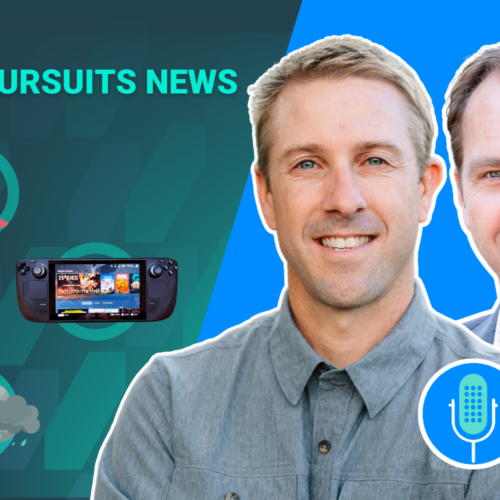

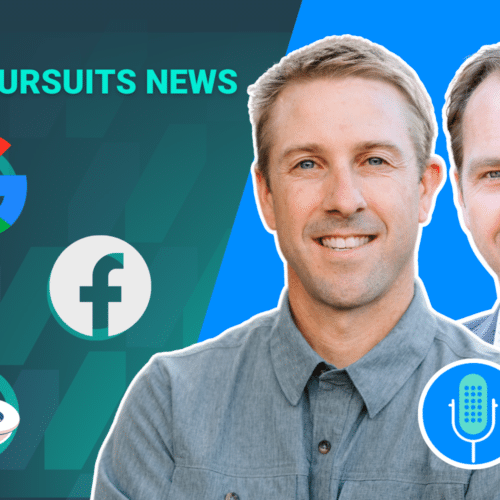






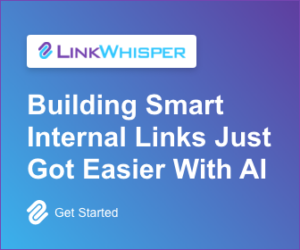



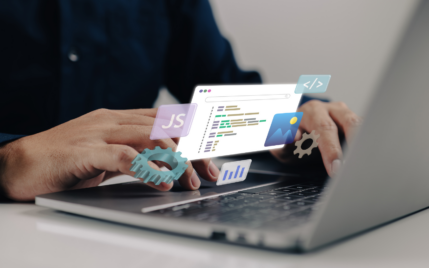

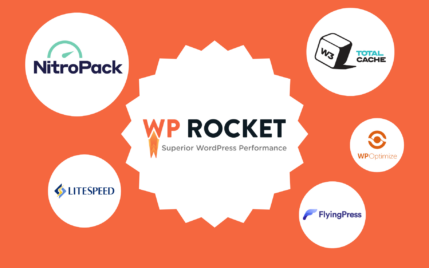
18 Comments
Conversation
Please keep up these stories from readers and listeners. They’re very inspirational. Especially the ones from folks that are at the start of their online careers and not yet making tens of thousands per month.
You got it…I have a few more on the way…already recorded!
Interesting talk. I am curious why their account was suspended by amazon. Surely they have some idea?
Justin gave me an update and they got their account back! Turns out Amazon closed it by mistake (that’s the explanation he got).
Hey Ty, we were told from Amazon they made a mistake. That’s a bit scary when there was no reason given for shutting us down. We are back live again though, and sales are picking back up nicely.
Justin, how many apps did you publish to reach that $1000 a day level? Any advice for choosing the type of apps to build (games vs utility), which type do you find easier to monetize?
Also it would be cool to hear your thoughts about different types of businesses since you’re involved in so many. Where do you see most potential and what would you focus on if you had to start today (apps/content sites//SaaS/…)?
Thanks!
Hey JB! Currently I have 13 apps, but 5 of them make up a bulk of the revenue and the others just make 5 to 20 dollars each. Three of them are fairly new. All are games.
I see a ton of potential still with Amazon FBA, and plan to grow the current business over the next year, and then sell it.
As far as content sites, I don’t believe in creating too many at once. Right now I’m working on one single big site and maintaining the others that have been built.
Apps is where I see massive potential for the next few years. Focusing on Android, there are tons of ways to engage people. I plan on creating at least 10 to 12 more apps in 2017.
If I had to start from scratch, with no money I would start by selling stuff on eBay. You can hussle pretty hard and do well with that. I would then take some of those profits and invest in building apps. If I already had money to invest in something I would simply start with apps and promote the heck out of them. I can get an app to make money much faster than a content site at the moment.
I believe with Amazon I was in a very fortunate position when I started to have built a relationship with someone who lives and sources product overseas.
Diversity is ultimately key, and in 2018 I plan on selling a lot of my portfolio to invest in commercial real estate.
Many thanks for your reply! I have a couple of quick follow up questions regarding apps.
1. Recently I’ve seen some studies and there’s a trend showing that people download less and less apps. They mostly use those big, venture backed apps, but in general, they don’t care that much anymore. I personally use just a handful of apps like Google Maps, Audible, Spotify, etc. I guess it might be a little different with games, they are usually always in demand. It’s interesting that you see a massive potential, any thoughts?
2. “Focusing on Android, there are tons of ways to engage people”. Can you elaborate more on that? Why Android only? Lots of indie developers report that they earn much more on iOS than Android.
3. How do you promote your games? From what I noticed, app makers usually have to rely on viral and organic growth because they can’t justify the marketing spend (low LTVs). How do you make your unit economics work?
Again, once again thanks for your tips 🙂 Cheers!
Sure thing JB!
1. I believe that games aren’t going away on Android for a long long time. Even though VR is talked about as the next big thing I don’t think we are quite there. I can’t say much for utility apps, but I do know guys still doing just fine on that area. It’s the same principle with building websites. If I was to say only people use WebMD or only use Mayoclinic to search about health, I would be missing the fact that even though they are big players they can’t cover everything. As long as you offer something of value or something that’s interesting enough people will use it. It doesn’t mean it will be a huge hit, but there are always new users discovering apps, even if they are small. As long as you promote them even a little bit they will make something. This is why I like playstore. I believe Google does a better job at helping with app discovery than Apple.
2. Even simple games like Crossy Roads can be huge. Given they aligned all the right marketing up with their launch. The game was very addictive. You could grow a portfolio of runner games, casino style games, or whatever you want as long as you know there are people wanting to play them. The key is to do something other people aren’t doing in the same market. Add rewards, add goals that require people to play longer. My suggestion to you would be to look at classic games that are extremely addictive, and better understand why people can play them for hours. Then incorporate that into what you do.
3. The organic discovery of my games is what allows me to grow and profit so well. I have such a small marketing budget on my games, but it’s consistent. I continue to use social and third party resources to generate installs and thus get discovered daily through the playstore generating me free installs and players. Even with this being done correctly, without retention you won’t do so well. If you have to continuously replace users who are dropping off with new users, that’s not always the best situation with an ad monetized model. It can work for instore purchases though. It’s a little complex to explain exactly how I came up with the formula for whether I could be profitable or not when I started, but if you want to understand it better you can reach out to Spencer and he can give you my Skype ID. I can give you more detailed information through messenger if you want to pursue apps.
So glad to be getting more podcasts, Spencer – I really encouraged you on that a good while ago, so it’s great to see. Always love the interviews you guys do, and actually – (and kinda funny, ‘cos you guys aren’t ‘BIG’ into the podcasting thing)…your podcast is one of the very few business related podcasts I still have on my list. I listen to a few random ones here and there, but only a very small handful of subscribed podcasts now. Yours is one of my faves.
Anyway – question!
I don’t mind anonymous interviews at all…but am I right in assuming that YOU (Spencer) have made sure they’re telling the truth about their numbers etc? As in, they’ve shared with you privately? If that’s the case – all good. If not, then not so much as I’ve heard a few interviews (elsewhere) and when I’ve done a little digging, started to doubt some of the claims made in the interview etc. So just thought I’d ask?
Thanks Steve! Yes, Justin shared a screenshot with me privately of his income from the mobile apps. I’ve also been connected with him a few years now, and he’s legit.
That’s great, thanks Spencer.
It’s a good format to be able to offer interviewees, as it might help some people feel free to share more if they are able to maintain a desired anonymity.
A couple things Justin said were some of the most encouraging I’ve heard in a while, and it was worded better than the, ‘just get started’ platitude:
“I think for everybody out there that’s just thinking about doing it or has just gotten started, it sucks, but experience is your best teacher in online marketing, Amazon sales or whatever you’re doing. Experience is number one and it really makes you an expert at what you do.”
…and his last comment…
“I would say that I’ve gone through so many different transitions over the past decades of what I’ve done. Some of them have been new and scary. Don’t get so scared that you don’t do anything and don’t overthink everything because sometimes you just have to jump in and fail a little bit to gain the knowledge to be successful. Don’t overthink it if you’ve been trying to put together a game plan for a month, maybe you’ve been trying to put that game plan together for too long. Put it together, execute, fail a little bit, maybe you have a huge success the first go around, maybe not, but don’t stop. Once you failed enough and you know that you’re just beating a dead horse, know when to call it quits and to move on to something else.”
I agree, those are some great tips!
Hey Justin,
Congrats on the success.
Just a quick question on partnerships. Were these partners people you came across online? Are these 50/50 or something different and if they are different how did you come up with that structure?
Thanks
Hey Justin, The app business that does over $1k a day is mine, but I also have another app partnership going with someone who invests on his account. We have a 50/50 partnership going on that. My Amazon business is split 50/50 as well. I do have other deal however where if the partner is not investing much of anything and occasionally helps, that they take a smaller share. Because I partner with other people, it allows me to earn money from other ad accounts should mine ever become jeopardized or lost for any reason. This might seem odd even though I am doing things quite legitimately, but you never know what can happen, and I spread my income all over the place and diversify as much as possible because I have put all my eggs in one basket in the past. Lesson learned.
Hey Justin
Thanks for the reply.
I agree it makes sense to diversify plus it helps when situations like what happened with you recently with Amazon occur.
How do you determine who does what in your partnerships particularly with the less than 50/50 splits?
Thanks
That is case by case, and is outlined in a written agreement. I don’t want to go too much in detail on that here, but if you want to pm me on Skype you can request my skype Id from Spencer.
Yes, My friend earn $1000 / 2 month with just one app for IOS ! And now he does it again in Android!